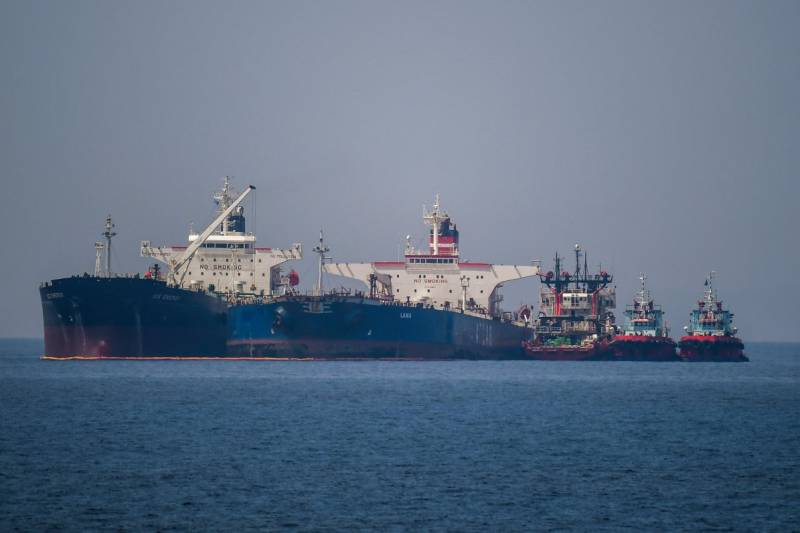Germany battles to secure stricken 'Russian shadow fleet' oil tanker

Stay tuned with 24 News HD Android App

Germany was battling Saturday to secure a heavily loaded tanker stranded off its northern coast, towing the stricken ship that it said was part of Russia's sanctions-busting "shadow fleet" away from shore to avert an oil spill.
The 274-metre-long Eventin was sailing from Russia to Egypt with almost 100,000 tonnes of oil on board when its engine failed and it lost the ability to manoeuvre overnight Thursday to Friday, according to Germany's Central Command for Maritime Emergencies.
As the vessel drifted in coastal waters Friday, Foreign Minister Annalena Baerbock slammed Russia's use of "dilapidated oil tankers" to avoid sanctions on its oil exports, calling it a threat to European security.
Three tugs have linked up with the Eventin and are attempting to steer it northeast, away from the coast and toward a "safer" area where there is "more sea space", the command said.
On Saturday morning it said the Eventin and the accompanying tugs were "still north of (the island of) Ruegen and moving eastwards".
The whole convoy was "travelling slowly" at a rate of about 1-2 knots, or 2.5 km/h, to safer waters northeast of Ruegen's Cape Arkona, the commando said.
It added that there were winds of 6 to 7 on the Beaufort scale in the area and that "stormy gusts" were expected to continue, while waves were around 2.5 metres (eight feet) high.
"Once the position has been reached the convoy will wait out the strong winds," the statement said.
No oil leaks were detected by several surveillance overflights, authorities said Friday.
'Rusty tankers'
Although the tanker was navigating under the Panamanian flag, the German foreign ministry linked it to Russia's "shadow fleet" used to avoid Western sanctions on its oil exports over its ongoing invasion of Ukraine.
Baerbock said that "by ruthlessly deploying a fleet of rusty tankers, [Russian President Vladimir] Putin is not only circumventing the sanctions, but is also willingly accepting that tourism on the Baltic Sea will come to a standstill" in the event of an accident.
Western countries have hit Russia's oil industry with an embargo and banned the provision of services to ships carrying oil by sea.
In response, Russia has relied on tankers with opaque ownership or without proper insurance to continue lucrative oil exports.
The number of ships in the "shadow fleet" has exploded since the start of the war in Ukraine, according to the Atlantic Council, a US think-tank.
In addition to direct action against Russia's oil industry, Western countries have moved to sanction individual ships thought to be in the shadow fleet.
The European Union has so far sanctioned over 70 ships thought to be ferrying Russian oil.
The United States and Britain on Friday moved to impose restrictions on around 180 more ships in the shadow fleet.
